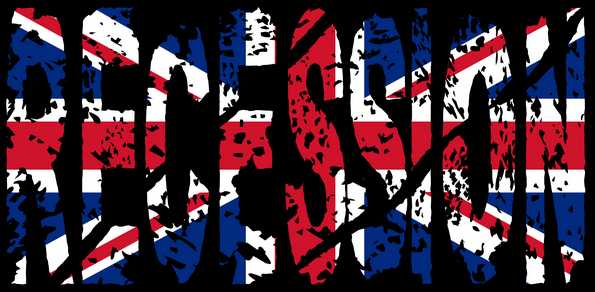European leaders will this week try to deliver new fiscal rules and cut Greece’s debt burden hoping investors ignore Standard & Poor’s euro-region downgrades. Initially European markets fell on opening as did the Euro which have both recovered to be hovering around positive territory. The thought could be that the French downgrade in particular was already priced into market expectations. The euro dipped 0.2 percent to $1.2657 in early trade, close to its 17-month low of $1.2624 hit last week, and well below the intraday high of $1.2879 seen on Friday. Sentiment had improved last week after Madrid and Rome found investor support for their first debt sales of 2012.
Italy takes a break from raising debt this week, France will attempt to sell up to 8 billion euros of debt and Spain comes to the market with sales of 2016, 2019 and 2022 bonds. Worries that European financial troubles would be a drag on global growth and affect the appetite for commodities weighed on industrial metals such as copper. France will auction as much as 8.7 billion euros of bills today, followed by the European Financial Stability Facility’s 1.5 billion-euro sale tomorrow.
Cash Hoarding
The amount of ‘cash’ being placed overnight with the European Central Bank hit another record high this morning approaching half a trillion euros. The ECB reported this morning that it parked €493.2bn in overnight deposits from European banks on Friday evening. The amount being borrowed through its overnight loan facility also increased, to €2.38bn. The overnight deposits figure has been hitting record levels in recent weeks, ever since the ECB pumped circa €500bn of cheap loans into the system.
UK Back In Recession
The Ernst & Young Item Club and the Centre for Economics and Business Research (CEBR) both believe that gross domestic product (GDP) shrank in the final quarter of last year and will fall again in the first three months of 2012. A recession is defined as two consecutive quarters of contracting output. The prospects for the economy in the UK are closely tied to the fate of the eurozone, according to both reports, which is hitting the export trade which is crucial to the country’s recovery.
Professor Peter Spencer, chief economic adviser to the Ernst & Young Item Club,
[quote]Figures for the last quarter of 2011 and the first quarter of this year are likely to show that we are back in recession and we are going to have to wait until this summer before there are any signs of improvement. But it’s not going to be a repeat of 2009 – we are not going to see a serious double dip.[/quote]
Greece And Haircuts
Greece’s prime minister insists that Greece will not be forced out of the euro and back to the drachma. Lucas Papademos told CNBC quitting the eurozone “is really not an option.” The unelected leader also claimed that negotiations with Greece’s creditors is going well:
[quote]Our objective is to complete the two processes and also to fulfil our commitments that have been made in the past and we are confident that we’re going to achieve this. Some further reflection is necessary on how to put all the elements together. So as you know, there is a little pause in these discussions. But I’m confident that they will continue and we will reach an agreement that is mutually acceptable in time.[/quote]
Market Overview
The euro fell earlier as much as 0.5 percent to 97.04 yen, the lowest since December 2000. Greek officials will reconvene with creditors on Jan. 18 after discussions stalled last week over the size of investor losses in a proposed debt swap, raising the threat of default.
The MSCI Asia Pacific Index lost 1.2 percent, set for the biggest fall since Dec. 19. The index has climbed 7.5 percent since a two-year low in October and capped four weeks of gains on Jan. 13, the longest stretch in a year.
European stocks and the euro rebounded, while oil and copper climbed before a French bond auction. Asian equities fell the most in a month after Standard & Poor’s stripped France of its top credit rating and cut eight other euro-zone nations.
The Stoxx Europe 600 Index fell less than 0.1 percent as of 8:30 a.m. London,time, reducing its earlier decline of 0.5 percent. The euro was little changed at $1.2673 following a previous drop of 0.4 percent. Standard & Poor’s 500 Index futures sank 0.3 percent. French 10-year government bond yields rose four basis points to 3.12 percent. Copper, gold and oil advanced by up to 0.2 percent.
Market snapshot at 9:40 am GMT (UK time)
Asian and Pacific markets mostly fell in the overnight and early morning session. The Nikkei closed down 1.43%, the Hang Seng closed down 1.0% and the CSI closed down 2.03% – now down 24.13% year on year. The ASX 200 closed down 1.16%. European bourse indices have recovered their sharp opening losses moving into positive territory but have now fallen back slightly. The STOXX 50 is flat, the FTSE is down 0.14%, the CAC is down 0.13%, the DAX is up 0.24%. The MIB is up 0.30% down 30.56% year on year. Ice Brent crude is up $0.64 at $111.26 and Comex gold is up $11.80 an ounce. The SPX equity index future is down 0.36% although USA markets are closed for the annual Martin Luther King holiday.
There are no significant economic data releases to be mindful of in the afternoon session.





